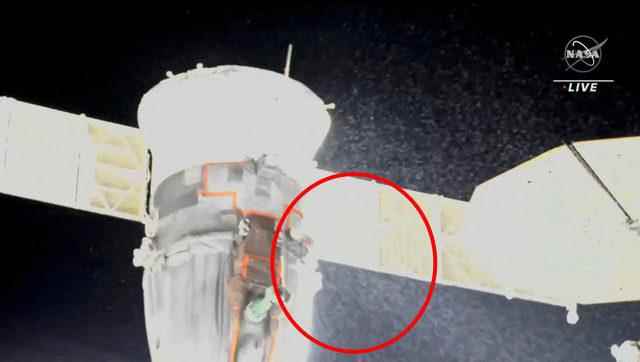The leak crisis in space came to our agenda with the cancellation of the spacewalk of two cosmonauts, Sergey Prokopyev and Dmitriy Petelin, aboard the Soyuz MS-22 spacecraft attached to the International Space Station. The march was canceled due to a coolant leak from the spacecraft. Successive statements were made by the Russian International Space Agency (Roscosmos) and NASA. NASA TV captured images of white particles streaming from the capsule like snowflakes. While everyone was wondering what step Russia would take, a new news appeared in the British press.
THEY CONSIDER BRINGING IT HOME BEFORE SCHEDULED
According to the news of the BBC; Russia’s space agency Roscosmos said it was considering sending an empty spacecraft to the International Space Station (ISS-ISS) to bring the three crew members home ahead of schedule after the Soyuz capsules began leaking.
According to the report, Roscosmos and NASA reported that it is not clear what caused the puncture of the outer radiator on the spacecraft. They ruled out the possibility of a meteor impact.
According to the report, the leak started as the two cosmonauts were preparing for a routine spacewalk, while a decision has not yet been made on how exactly the three crew members will be brought back to Earth.
MOST POSSIBLE OPTION: “EMPTY STRING”
However, it was emphasized that the most likely option is to send another Soyuz spacecraft to collect the crew.
A less likely option is to bring them home with the leaky capsule, without most of the cooler that regulates temperatures inside the spacecraft’s crew compartment.
NASA’s ISS program manager, Joel Montalbano, said late February would be the most likely time to launch another Soyuz. The crew would return in March according to the normal schedule.
On the other hand, NASA says that none of the crew members are in danger.
Montalbano said the capsule is currently ventilated by airflow to the space station through an open hatch.
The ISS (ISS) was launched in 1998 and is located approximately 400 km from Earth. Cosmonauts conduct tests and research on the station that will aid future space missions.
